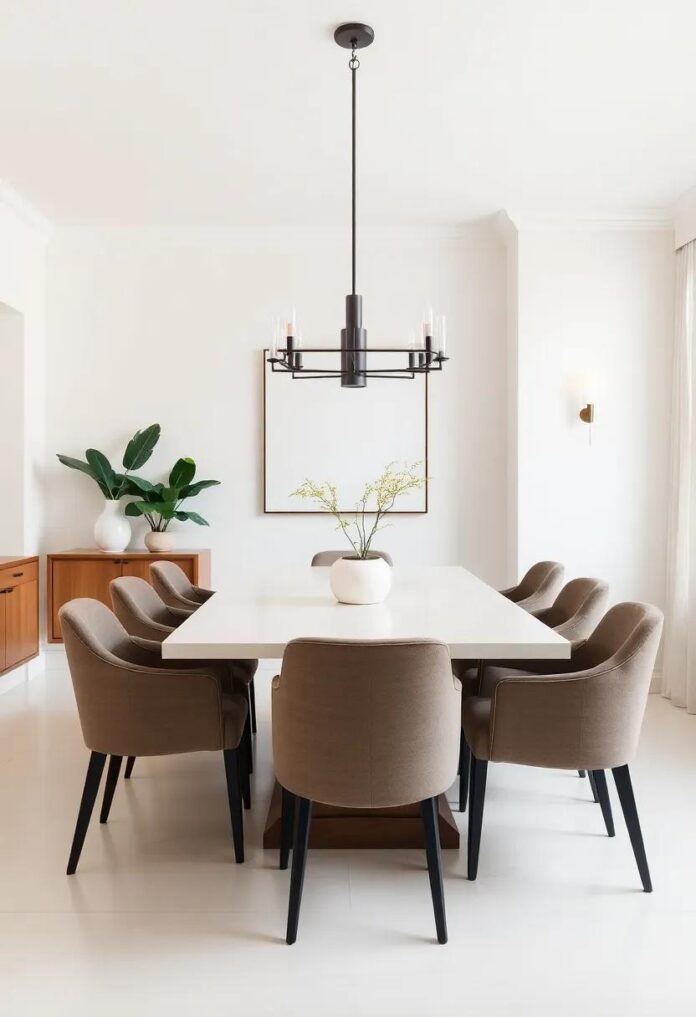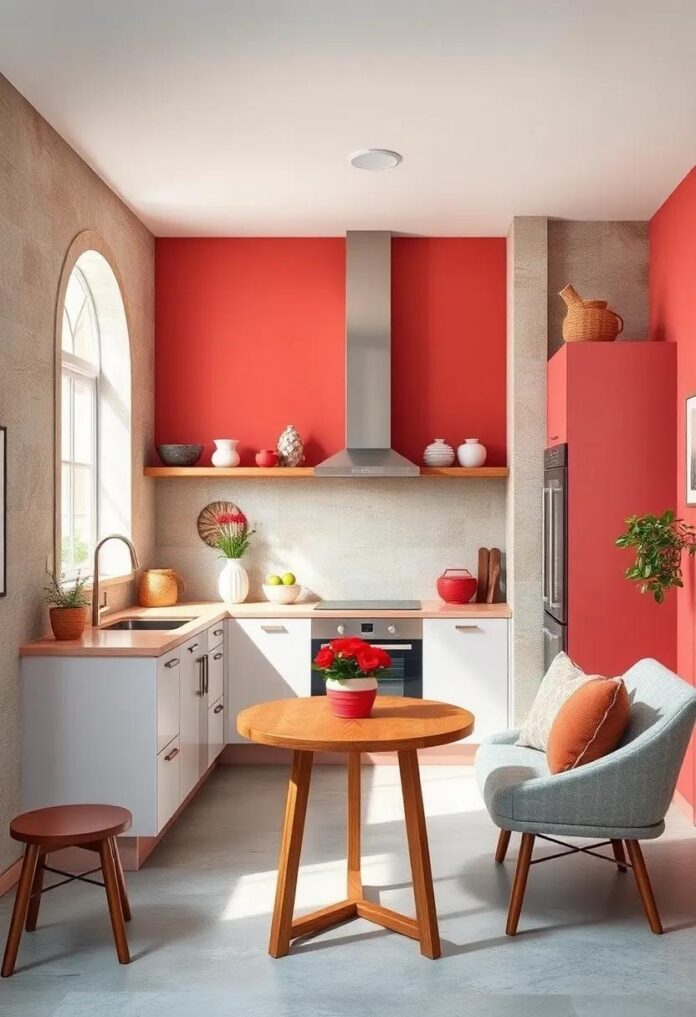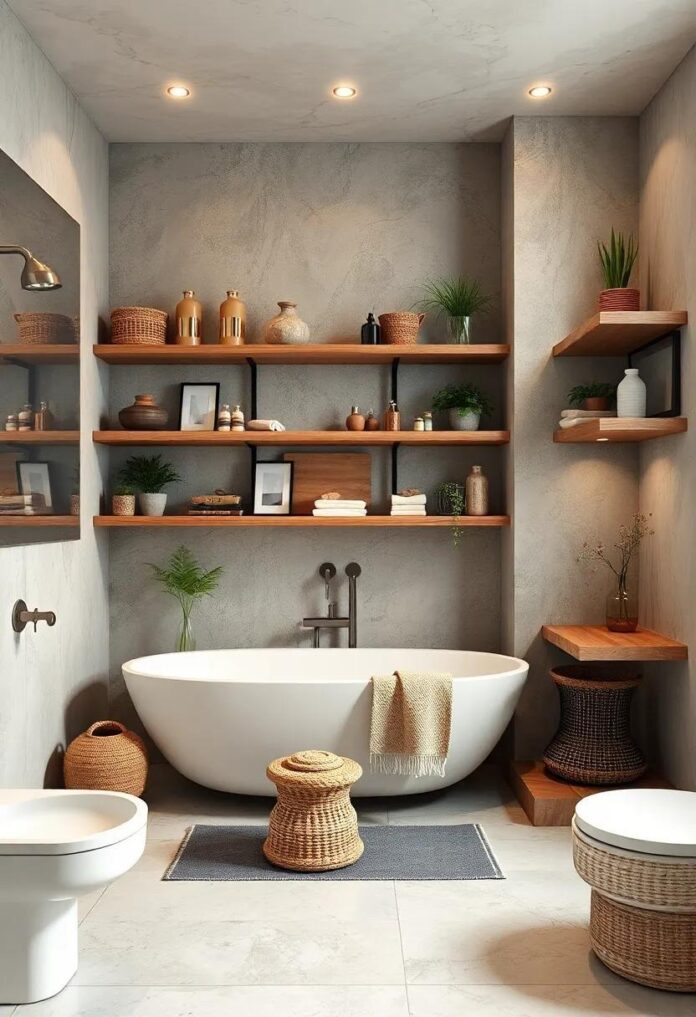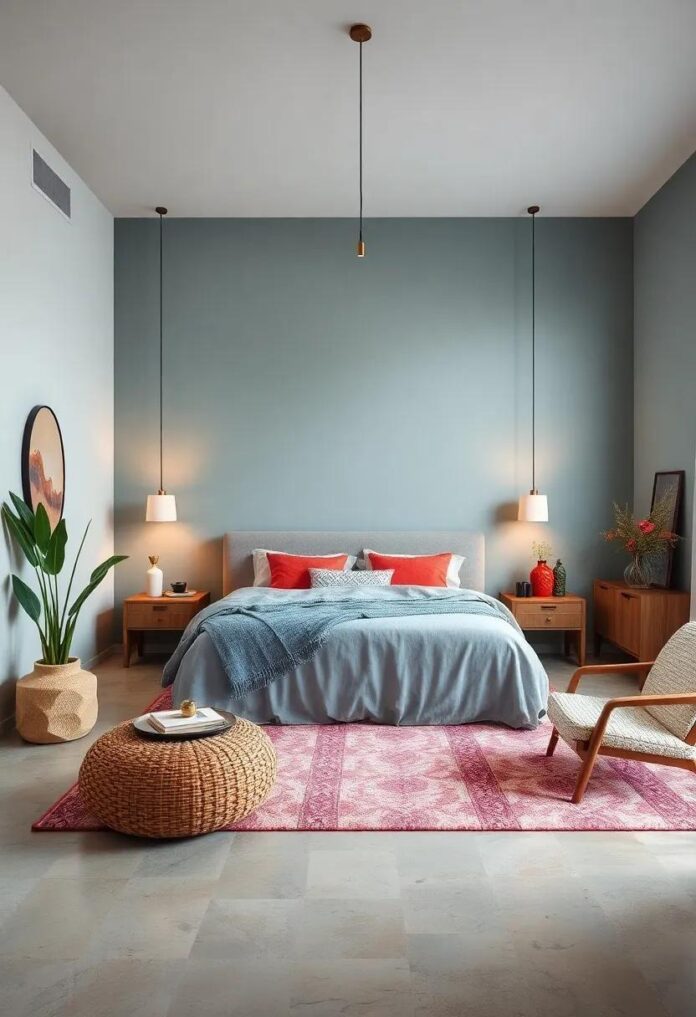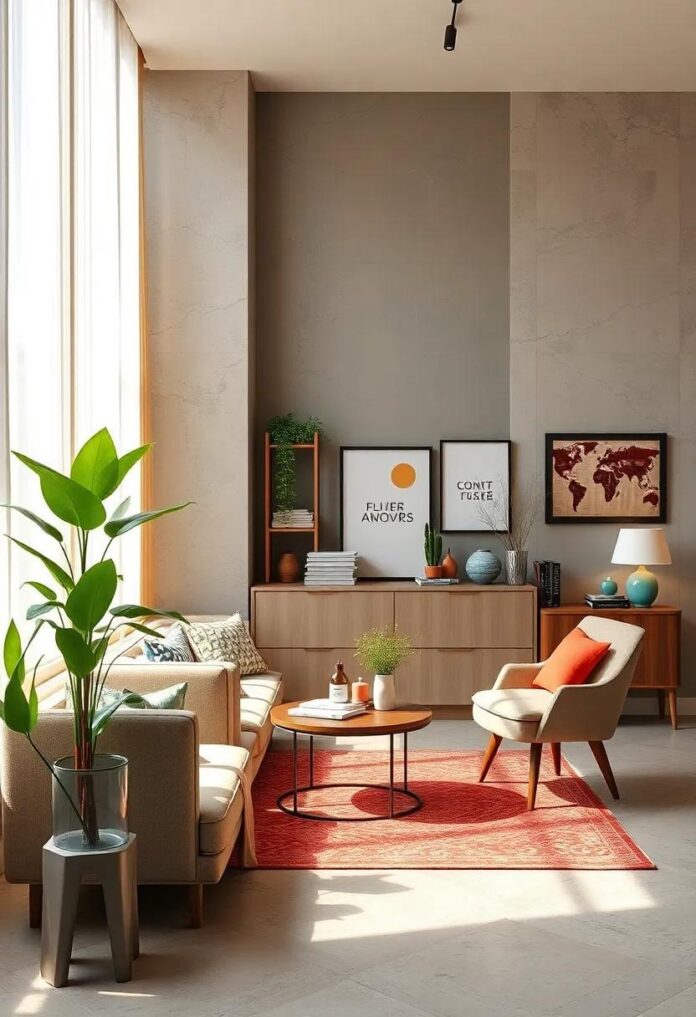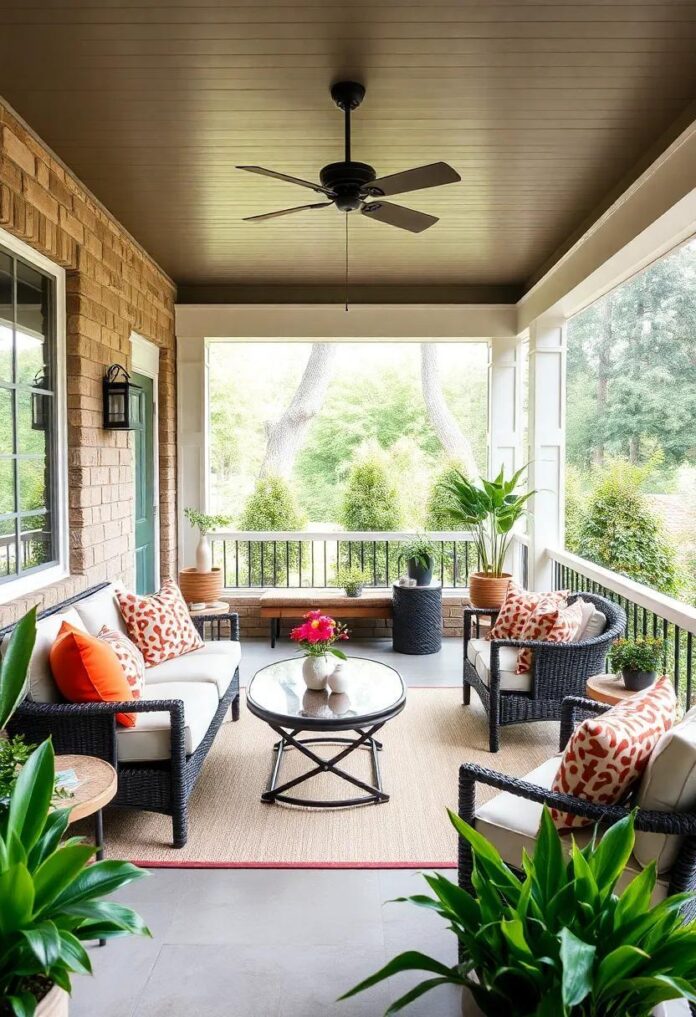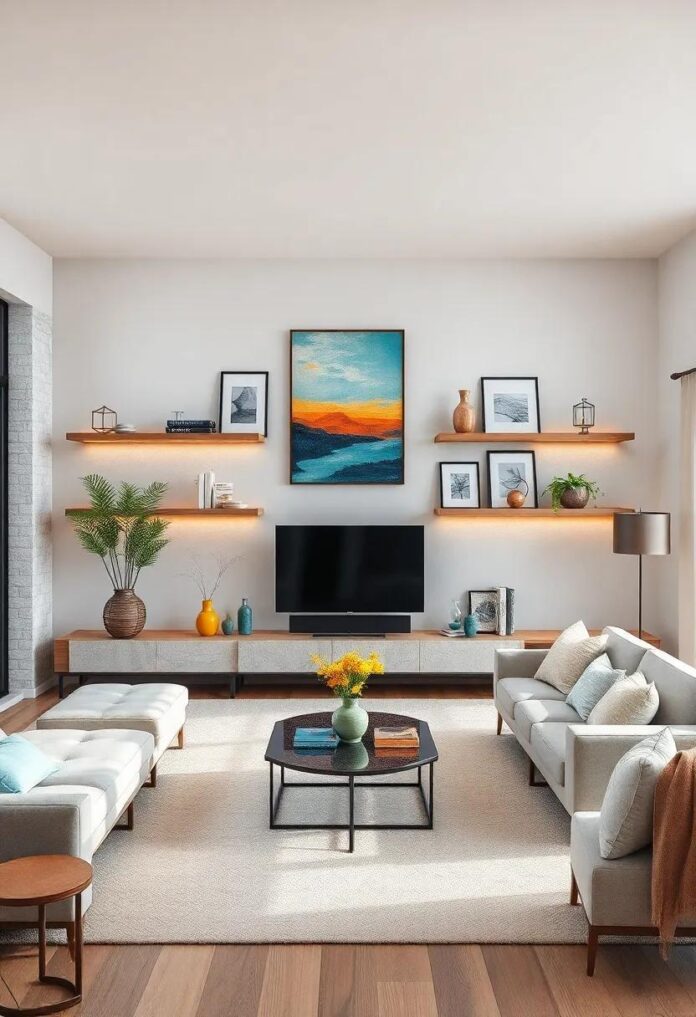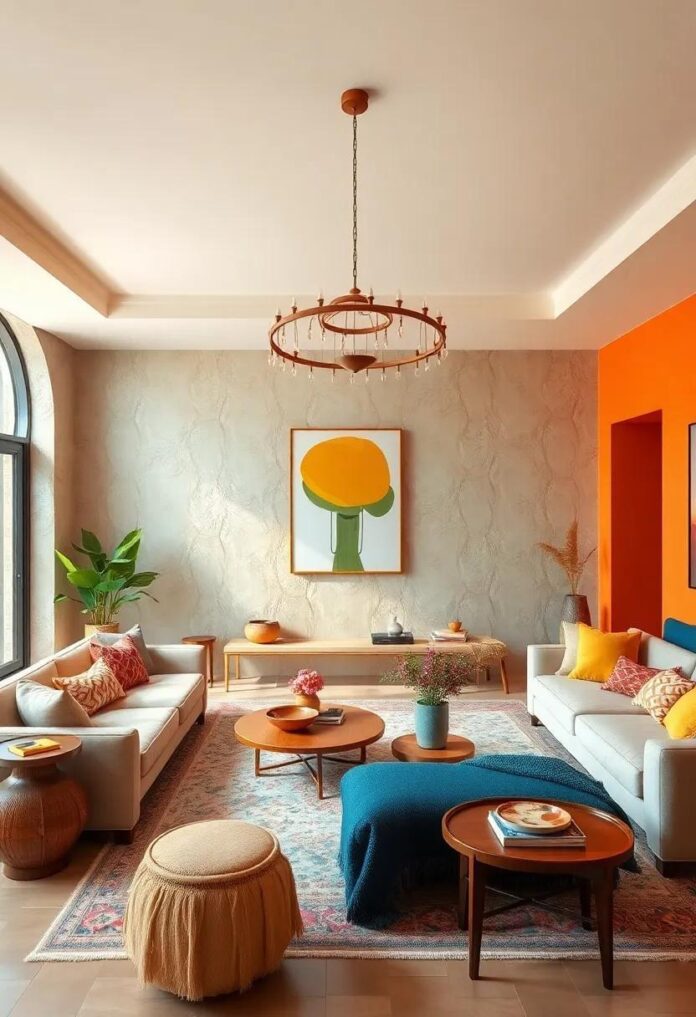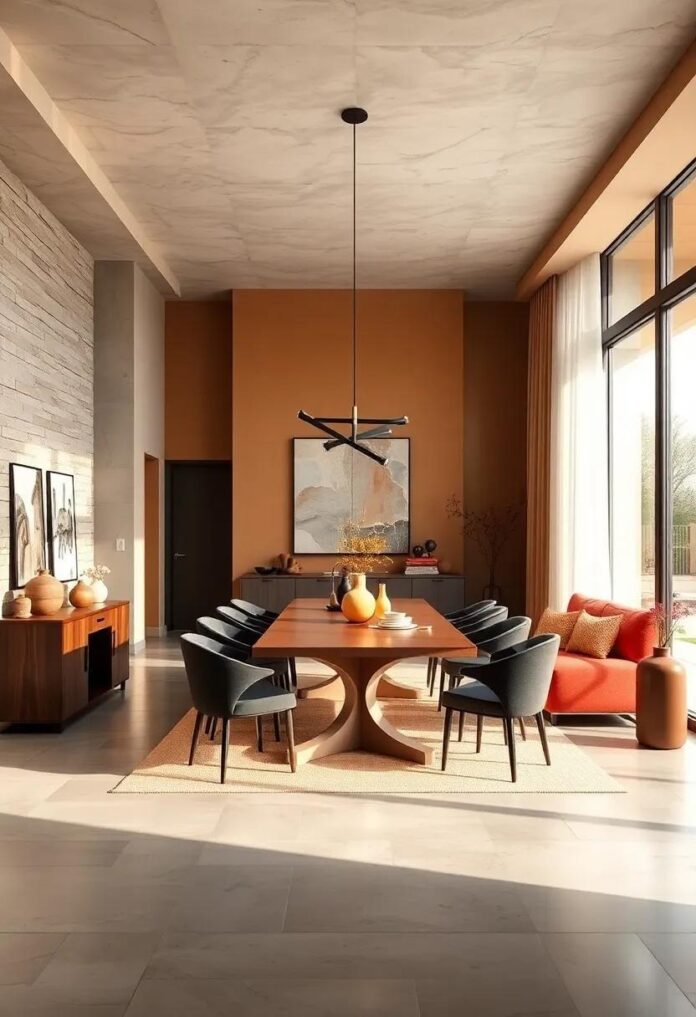In the heart of the home, the dining room serves as more than just a venue for meals; it is a cherished space for connection, laughter, and the sharing of life’s moments.The ambiance of this room can significantly influence the experience shared within its walls, and a thoughtfully chosen color scheme plays a key role in creating that ideal atmosphere. “” invites you to explore the serene beauty of neutral palettes, where subtle shades come together to craft a backdrop of sophistication and warmth. In this article,we will delve into the principles of neutral colors,their psychological effects,and how to harmonize textures and materials to curate a dining space that transcends fleeting trends,enveloping your gatherings in enduring elegance. Join us as we uncover the nuances of neutral design and inspire your journey toward a dining room that epitomizes both style and comfort.
Creating a welcoming Space with Soft Earth Tones in Dining Room Design
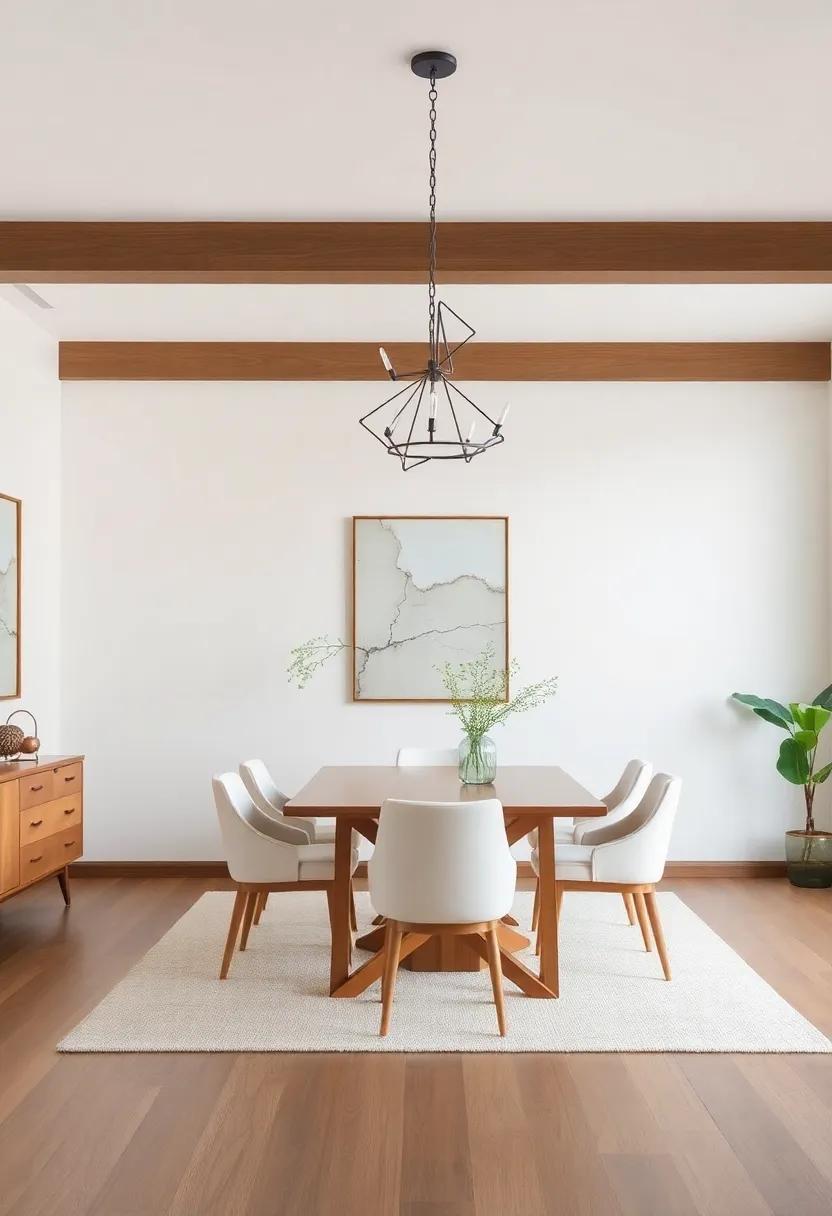
Incorporating soft earth tones into your dining room can evoke a sense of tranquility and warmth that makes every meal feel special. Shades like muted greens, gentle browns, and soft beiges create a harmonious background that enhances the natural beauty of your decor. Thes colors not only promote relaxation but also offer versatility, allowing for a mix of textures and materials. To further enrich the ambiance, consider pairing these tones with:
- Natural Wood Accents: Wooden tables or chairs help to ground the space and add organic elements.
- Textiles in Complementary Hues: Soft pillows, table runners, or curtains in similar shades can tie the room together.
- Warm lighting: Use ambient lighting to highlight earthy tones and create an inviting atmosphere.
When designing with soft earth tones, the key is to maintain balance and cohesion. Consider using a color palette that flows seamlessly across different elements of the room, ensuring that no single aspect feels out of place. A simple table can help visualize this integration:
| Element | recommended Colors | Texture Suggestions |
|---|---|---|
| Walls | Soft Beige, Sage Green | Matte Paint |
| Furniture | Warm Walnut, Natural Oak | Distressed Finish |
| Textiles | Cream, Terracotta | Wool, Linen |
By thoughtfully selecting your colors and materials, you can create a dining space that is not only visually appealing but also invites connection and togetherness among family and friends.
Balancing Warm and Cool Shades for a Serene Dining Experience
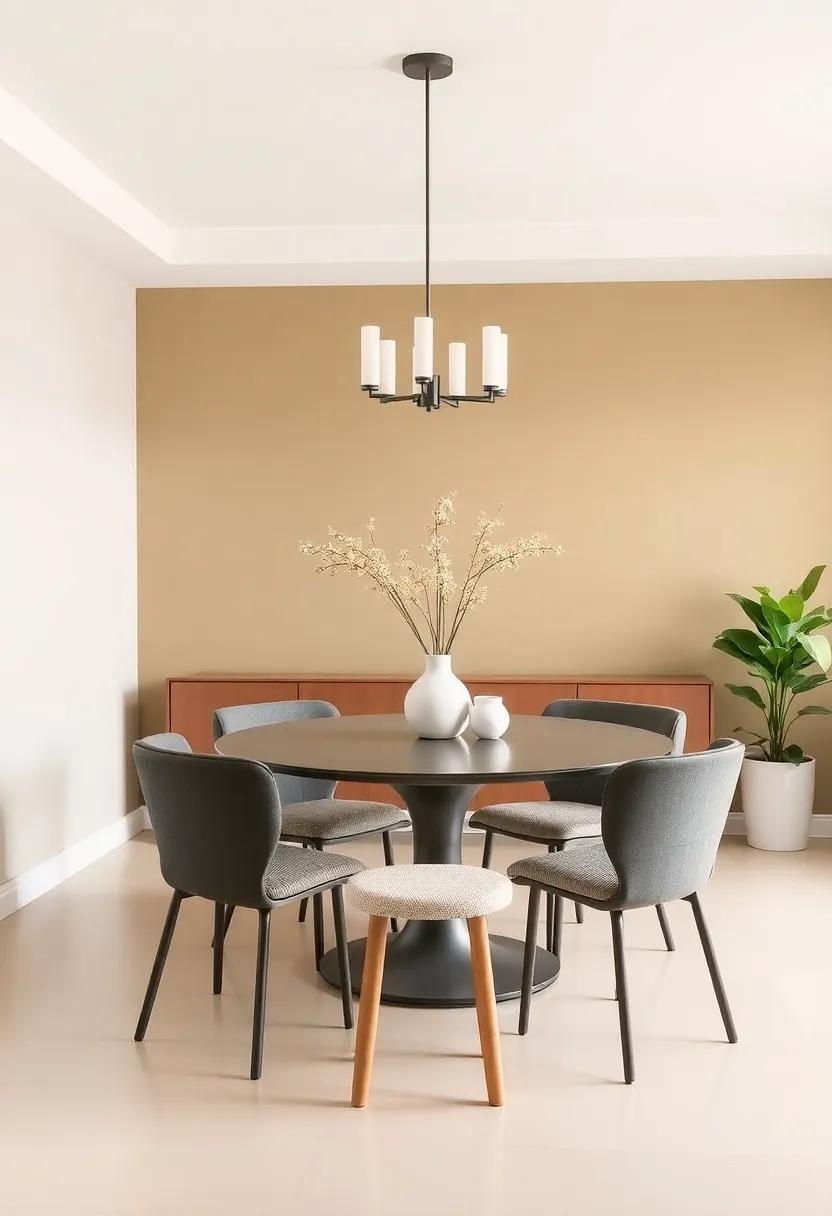
Creating a serene dining atmosphere hinges on the skillful blending of warm and cool shades. One effective approach is to choose a primarily neutral palette while introducing accent colors that evoke a sense of calm and comfort. Warm shades such as soft beiges and gentle taupes can evoke warmth and intimacy, making the space inviting for family and friends.To achieve balance,cool hues like soft blues or muted grays can be introduced through decor elements such as table runners or wall art,allowing for a refreshing contrast without overwhelming the senses. consider the following ideas:
- Accent Wall: Opt for a subtle shade of blue to create a feature wall that contrasts nicely with warm wooden tones.
- Table Decor: Use tableware in varying shades, incorporating both warm earth tones and cool water hues for visual interest.
- Artwork: Select pieces that blend both tones, ensuring they harmonize with the overall aesthetic of your dining experience.
When thinking about lighting, it plays a crucial role in enhancing these colors. A dimmed warm light can make warm shades pop, creating an inviting atmosphere, whereas brighter, cooler lighting can highlight cooler accents, making them stand out. Consider a stylish chandelier or pendant lights with a warm glow to retain a cozy ambiance. To illustrate how these shades interact in a dining room scheme, here’s a simple comparison table:
| Shade Type | Examples | Effect |
|---|---|---|
| Warm | Beige, Terracotta, Cream | Inviting and Cozy |
| Cool | Soft Blue, Dusty Green, Gray | Relaxing and Calming |
Incorporating Textures: The Key to Depth in Neutral Color Schemes
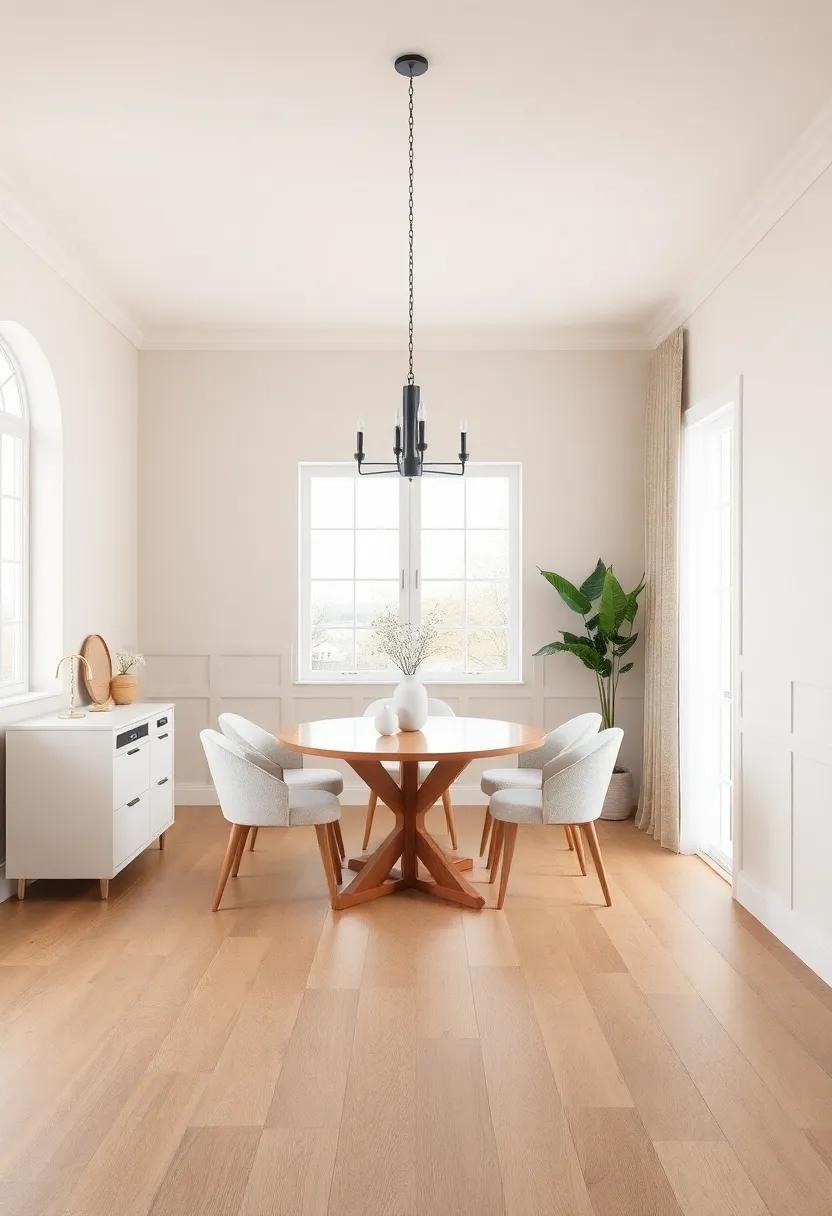
When designing a neutral dining room, the allure frequently enough lies in the subtlety of the color palette, where whites, beiges, and grays reign supreme. However, to achieve a truly captivating space, integrating various textures is essential. A flat expanse of color can feel uninspired, but by layering materials, you can create an engaging atmosphere that draws the eye. Consider incorporating elements such as:
- Textured textiles: Think plush cushions or woven table linens that add dimension.
- Natural finishes: wooden surfaces, like a reclaimed dining table, contrast beautifully with smooth ceramics.
- Metal accents: A polished chandelier or brushed brass hardware can introduce an elegant sheen.
Using texture not only enhances the visual interest of a neutral scheme but also introduces a sensory experience that elevates the dining ambiance. layering these materials thoughtfully can also help define spaces within an open-plan layout, guiding guests through the surroundings. For instance, pairing a soft area rug with a sturdy dining table can demarcate the eating area while inviting everyone to engage with the overall warmth of the room. The right combinations can transform a simple color scheme into a rich tapestry of style and comfort, ensuring that every meal shared in your dining room is both memorable and exquisite.
The Impact of Lighting on Neutral Color Choices in Dining areas
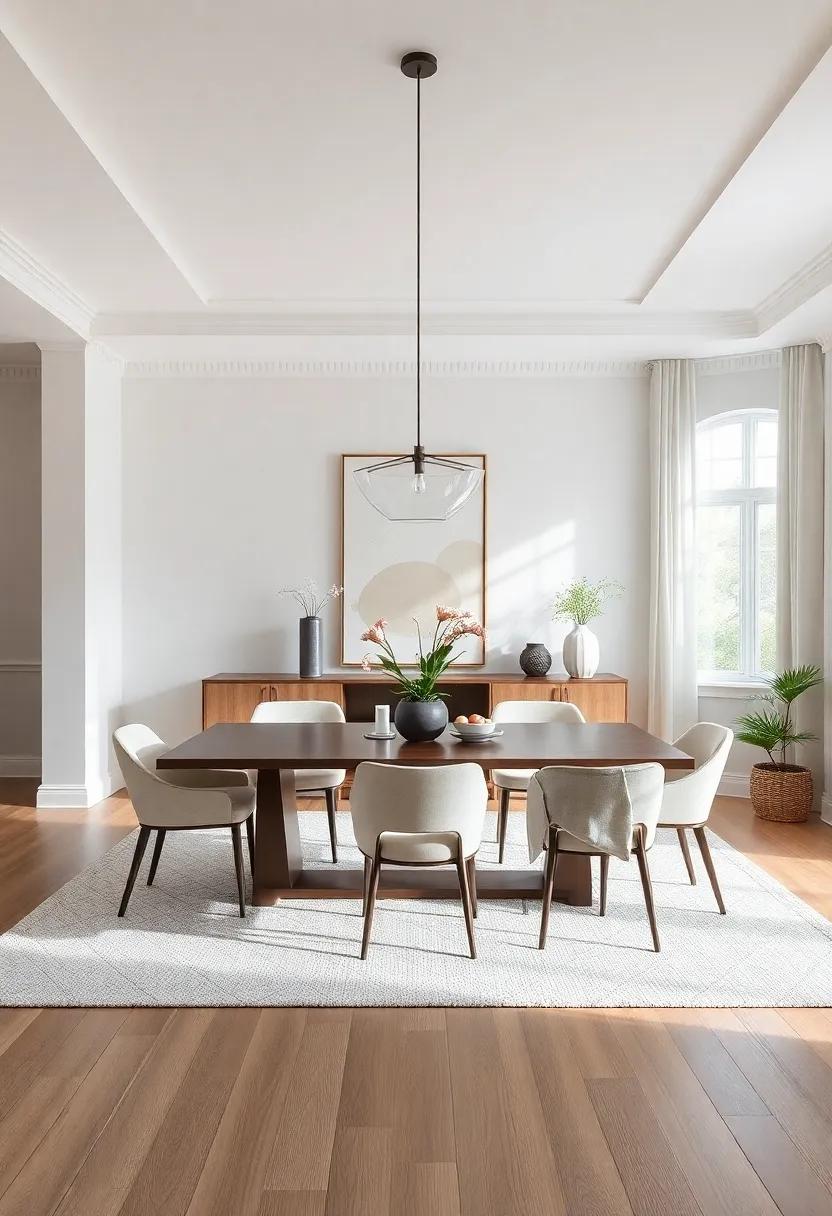
The interplay of light and color in a dining area is essential for establishing the desired ambiance. Natural light, when abundant, can enhance the subtle undertones of neutral palettes, transforming a simple space into an oasis of warmth and sophistication. Conversely, artificial lighting plays a crucial role, with different types producing various effects on color perception. For instance, warm white lights can make beige or taupe hues appear cozier, while cooler, bluish lights can lend a crisp edge to grays and whites, emphasizing a contemporary aesthetic.
When selecting colors for a neutral dining room,consider how they will interact with your lighting fixtures. Here are a few tips to make the most of your space:
- Test colors under different lighting: Samples should be viewed in both natural and artificial light at various times of day.
- Layer lighting sources: Use ambient, task, and accent lighting to create depth and highlight your choice of colors.
- Use reflective surfaces: mirrors and glossy finishes can amplify light, enhancing the appeal of neutral tones.
Furniture Selection: Choosing Pieces that Complement Neutral Palettes
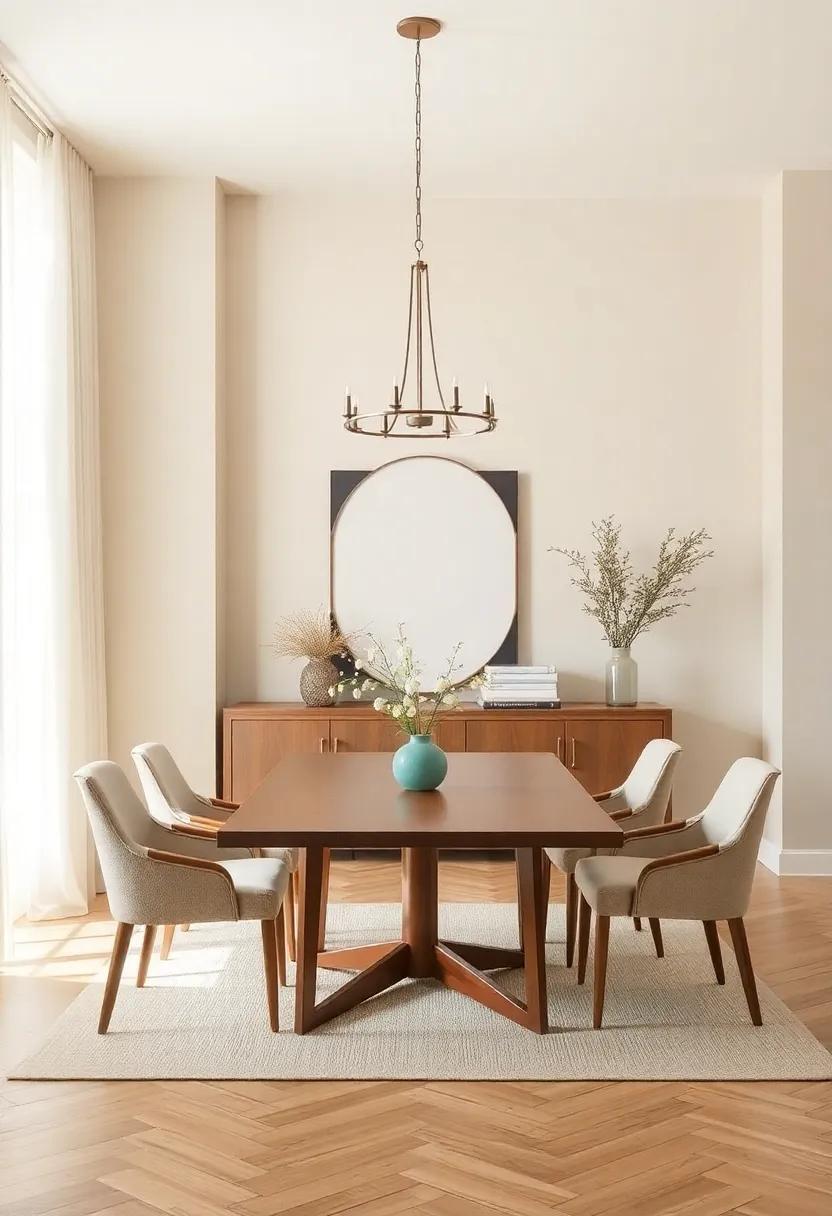
When curating furniture pieces for a dining room anchored in a neutral palette,the key lies in selecting items that add character while maintaining cohesion with the surrounding colors. Wood accents, as a notable example, can introduce warmth and texture, making them ideal companions for a soft beige or cool gray scheme. Consider pieces like a rustic oak dining table, which can serve as a stunning focal point and complement various neutral shades. Metals such as brushed brass or matte black can also be integrated through light fixtures or table legs,adding a modern edge without overwhelming the serene atmosphere. By thoughtfully combining materials, you can create a harmonious blend that speaks to both comfort and sophistication.
Along with texture and material, the shape and scale of furniture play a crucial role in designing an elegant dining space. Opt for streamlined,minimalist designs that emphasize simplicity and functionality. Rectangular tables can work well in larger spaces, while round options foster intimacy in cozier settings. Include upholstered chairs in light tones, as they provide visual softness and comfort.to further enhance the look, accessorize with subtle elements like a sleek sideboard or elegant bar cart that seamlessly integrates into the overall design. Each element should contribute to a tranquil atmosphere,ensuring every dinner gathering feels effortlessly stylish.
Table Settings and Decor: Enhancing Elegance with Subtle Accents
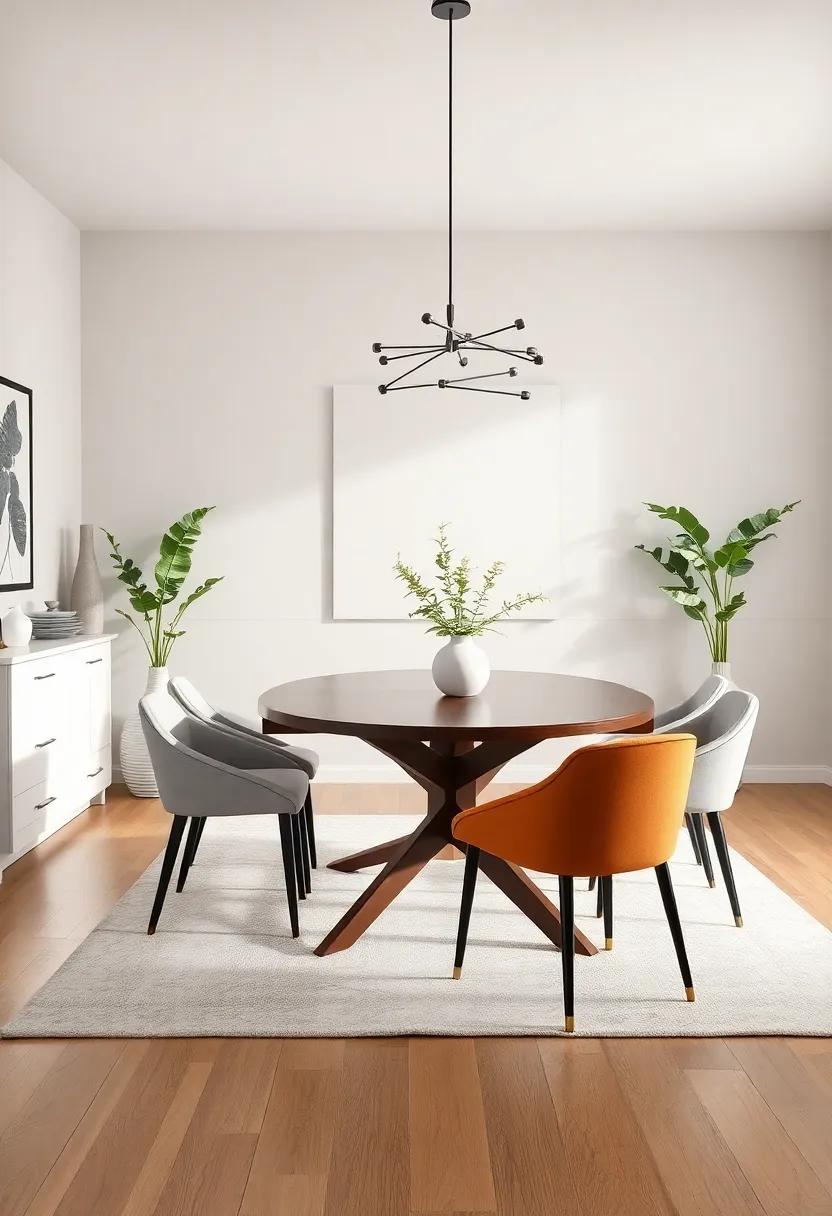
Creating a dining experience that embodies sophistication and charm requires careful attention to table settings and decor. Start with a neutral palette as your foundation,layering textures and materials to create depth. Consider using linen tablecloths or cotton runners in soft earthy tones to anchor your table. Incorporate subtle touches like handmade ceramics or understated glassware, which subtly catch the light and draw the eye without overwhelming your guests. Choose flatware with a matte finish to add a hint of modern elegance while remaining timeless.
Enhancing your dining table with natural elements can further elevate the atmosphere.A simple centerpiece of fresh flowers in muted shades or elegant greenery in air-tight terrariums ensures that the focus remains on conversation and connection. Consider these accents:
- Wooden serving platters for a rustic charm
- Candle holders in varying heights to create dimension
- Coordinating napkin rings that reflect the table’s color scheme
| Accent Item | Material | Purpose |
|---|---|---|
| Wooden Bowl | Acacia | Serving or decoration |
| Glass Vases | Crystal | Floral arrangements |
| Table Runner | Linen | Textural contrast |
Using Natural Materials to Enrich a neutral Dining Room atmosphere
Incorporating natural materials into a dining room can transform a neutral color scheme into an inviting oasis of warmth and texture. Such elements not only resonate with timeless elegance but also contribute to a harmonious ambiance. Consider integrating the following materials:
- Wood: Rich wooden dining tables or chairs bring depth and character.
- Stone: A stone centerpiece or ceramic decor can introduce an earthy element.
- Textiles: Natural fabrics like linen or cotton for table linens enhance comfort and style.
- plants: Potted herbs or succulents can add a pop of life and freshness.
The balance between subtle hues and natural textures creates an inviting atmosphere where guests feel at ease. Consider this simple table to inspire your design selections:
| Material | Effect |
|---|---|
| Wood | Warmth and stability |
| Stone | Earthy elegance |
| textiles | Softness and layering |
| plants | life and color |
The Role of Greenery in Harmonizing Neutral Color Schemes
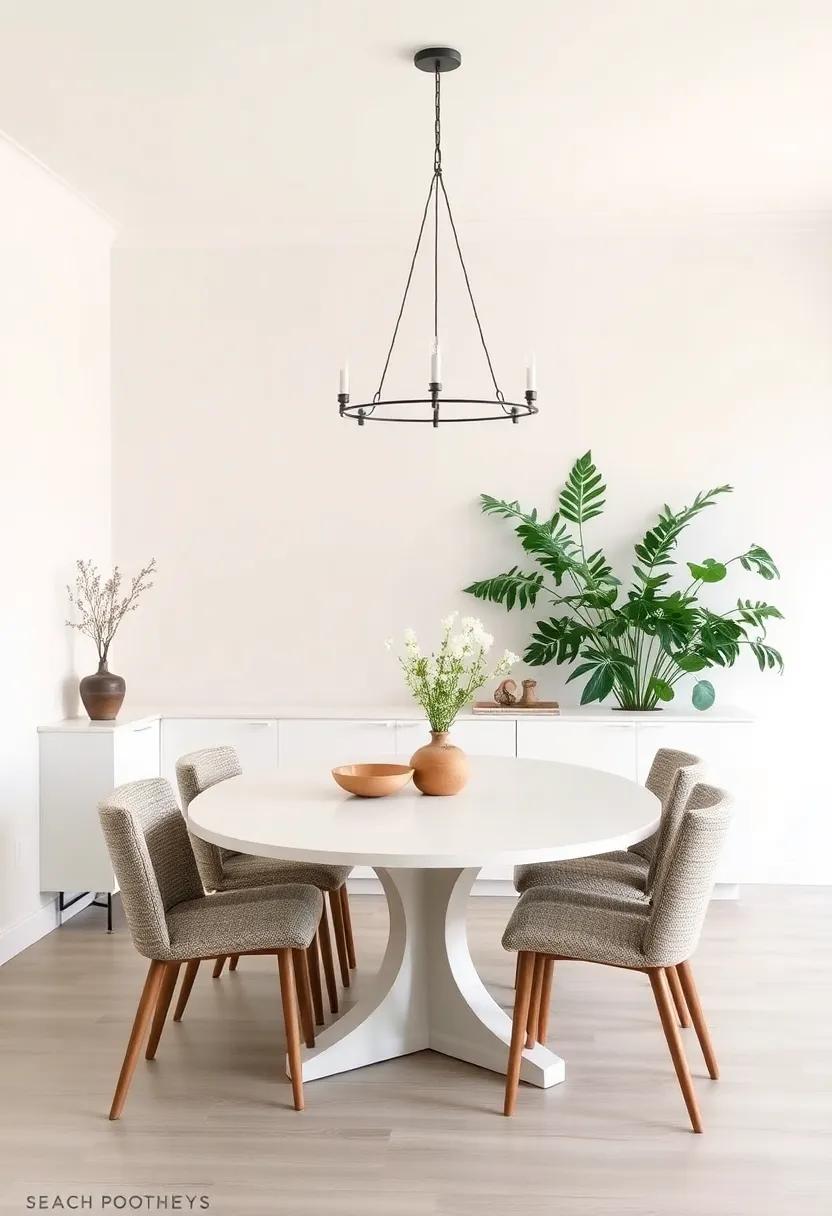
Incorporating greenery into a neutral color scheme not only adds visual interest but also creates a sense of tranquility and balance.Plants offer a refreshing contrast to subdued tones, making spaces feel alive and inviting. When selecting greenery, consider the following types that harmonize beautifully with neutral palettes:
- Fiddle Leaf Fig: Its large, glossy leaves become a statement piece while complementing earthy tones.
- Snake Plant: With its sleek, upright form, it introduces verticality and modernity in a simple manner.
- Peace Lily: The elegant white blooms provide a soft contrast, enhancing the serenity of neutral shades.
- Pothos: Its cascading vines bring a natural, organic feel and soften angular furniture lines.
Integrating these elements creates a harmonious dialogue between nature and design.Along with their aesthetic appeal,plants also contribute to improved air quality and mood. To maximize the impact of greenery in your dining room, consider the following tips:
| Tip | Description |
|---|---|
| Vary Heights | Use plants of different heights to create visual layers and interest. |
| Choose textured Leaves | Incorporate plants with varying leaf textures for added depth. |
| Group Plants | Use clusters of plants in decorative pots to form a cohesive look. |
Layering Shades: Creating visual Interest with Different Hues
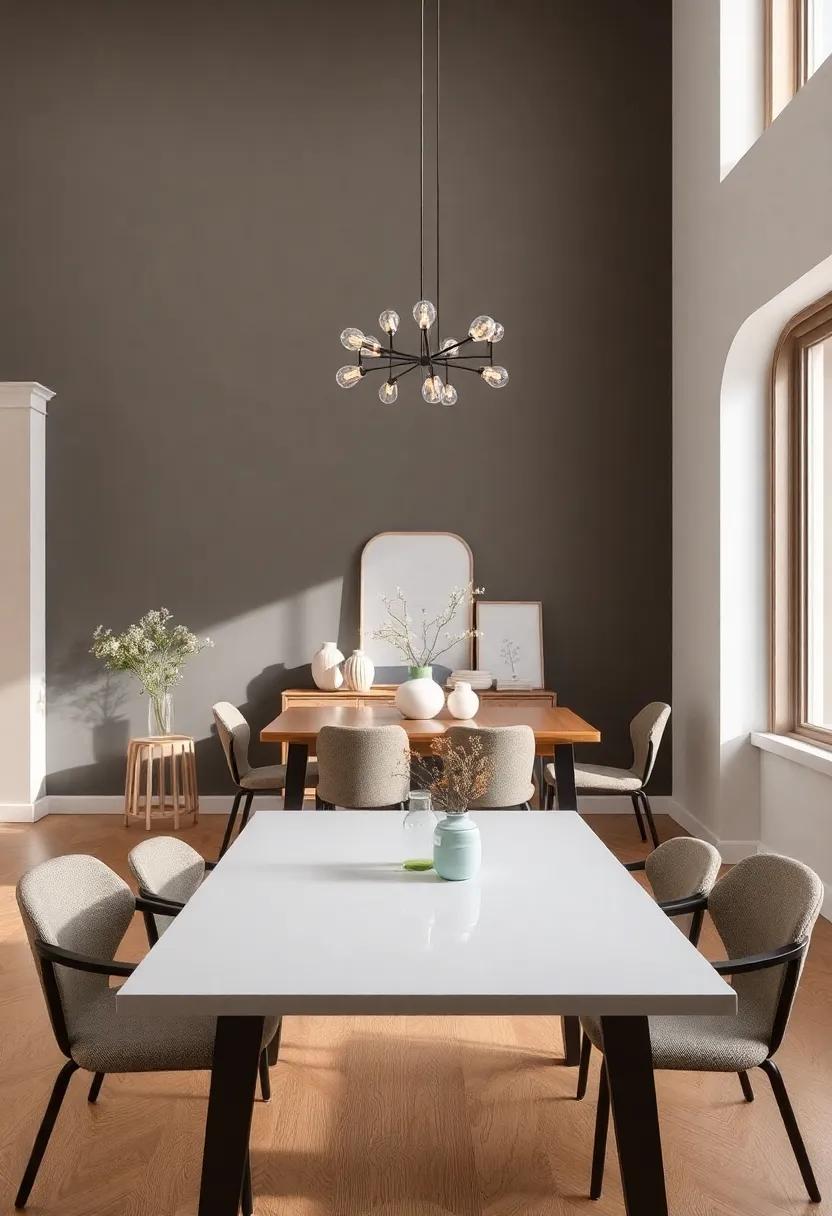
Exploring various shades within your neutral palette is an effective way to infuse depth and dimension into your dining room. By overlapping different tones, you can create a harmonious environment that draws the eye and encourages conversation. consider these combinations:
- Warm Greys and Soft Beiges: Combines two earthy tones that complement each other beautifully.
- Muted Whites and pale Blues: Introduces a serene vibe with a touch of freshness.
- Cool Taupes and Dusty Mauves: Offers a refined blend that feels both chic and inviting.
The strategic use of accent colors can elevate your neutral scheme,allowing unique components of your dining room to stand out. This might include utilizing a bold centerpiece or even selecting artwork with vibrant hues that contrast yet complement the subtleness of your wall colors. here’s how different elements interact within this layered approach:
| Element | Color Combination | Effect |
|---|---|---|
| Wall Color | Warm Grey | Cozy and inviting atmosphere |
| Furniture | Soft Beige | Creates a grounded, warm feel |
| Accent Pieces | Pale Blue | Adds a playful touch of contrast |
Pairing Neutral Walls with Statement Artwork for a Sophisticated Look
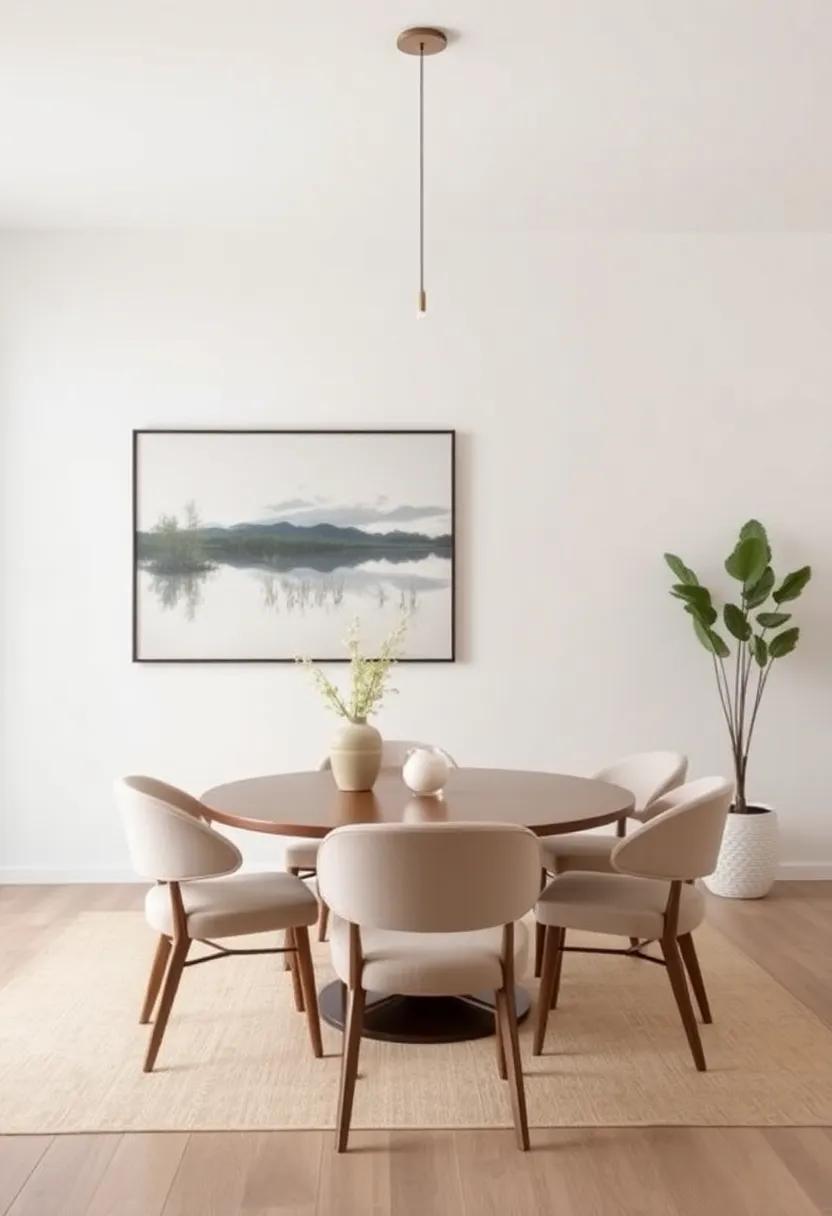
Neutral walls create a serene backdrop that allows your statement artwork to take center stage. By choosing hues such as soft grays, warm beiges, or cool whites, you set the stage for art pieces that can pop without overwhelming the space.Consider selecting pieces that have vibrant colors, intriguing textures, or captivating designs to accentuate the room’s overall aesthetic. The contrast between the understated wall color and the bold artwork not only captures attention but also adds depth and character to your dining area.
To achieve a truly sophisticated look, think about the scale and placement of your artwork. Large canvases can serve as stunning focal points, while a gallery wall with a mix of smaller frames can bring an eclectic charm to the room. Highlight your art with the right lighting; picture lights or backlighting can create a dramatic effect that enhances visual interest. Here are some tips to consider:
- Size Matters: Choose artwork that fits the scale of your walls.
- Frame it Right: Invest in quality framing that complements both the artwork and your décor.
- Layer Textures: Mix different materials, such as metal, canvas, or wood, for a rich visual experience.
- Maintain Balance: Ensure your artwork doesn’t overpower other design elements in the room.
The Influence of Color Psychology in Dining Room Ambiance
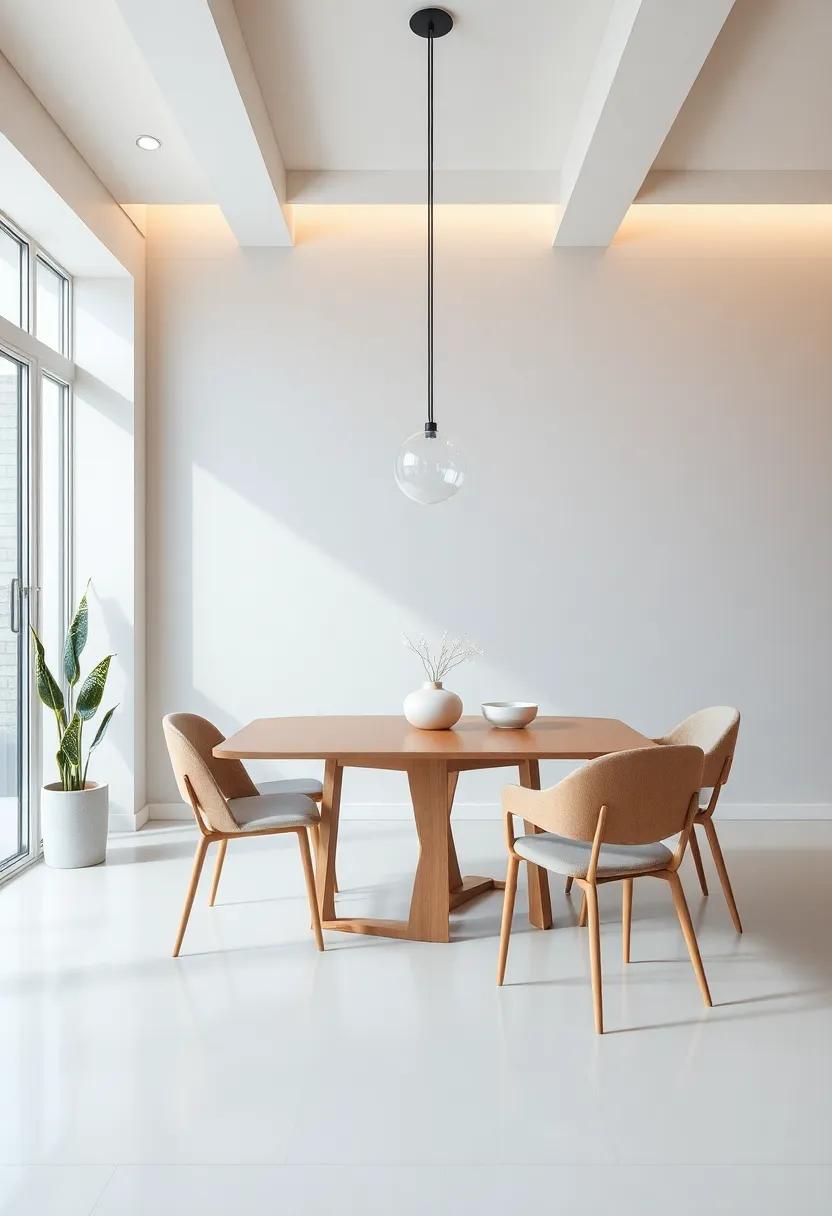
Color has a profound effect on our emotions and behavior, especially in spaces where we gather to share meals and memories. In the dining room,the choice of hues not only sets the mood but also influences how we perceive flavors and aromas. Earthy tones such as taupe, beige, and soft greens can elicit feelings of calmness and comfort, making them ideal for a relaxing dining environment. By incorporating these colors into your decor, whether through wall paint, furniture, or accessories, you can create an ambiance that encourages conversation and connection. Consider adding accents of warm yellows or peachy tones to stimulate appetite and enhance the overall dining experience.
When planning a neutral color scheme, layering textures becomes essential to avoid a flat aesthetic. Integrating a variety of materials can create depth and visual interest. think about combining soft fabrics like velvet or linen with natural elements such as wood or stone. Additionally, here are some key elements to consider when harmonizing your dining room:
- Natural Lighting: Maximize daylight with airy curtains.
- Artwork: Choose pieces that incorporate your color palette.
- table Settings: Use neutral dishware to complement your decor.
To further illustrate the impact of color schemes,consider this simple table displaying popular neutral shades and their psychological effects:
| Color | Effect |
|---|---|
| Beige | Warmth and Approachability |
| Gray | Calmness and Balance |
| soft Green | Restfulness and Connection to Nature |
Crafting a Cohesive Look with Open Floor Plan Neutral Color Schemes
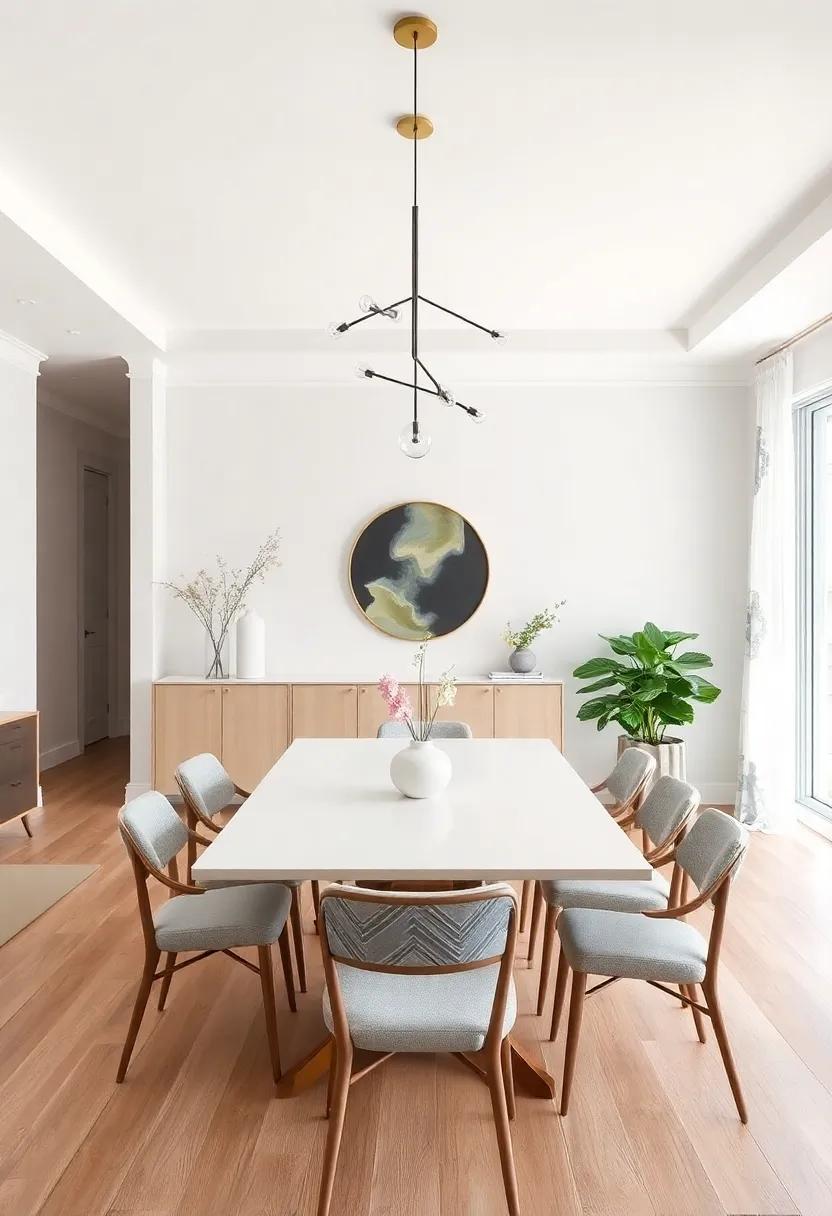
In a world where spaciousness reigns supreme, an open floor plan demands an artful touch when it comes to color selection. Neutral color schemes serve as a blank canvas, allowing the dining area to coexist harmoniously with adjacent spaces. A well-curated palette can create a seamless transition, pulling together various elements, from textured fabrics to unique wall art. Consider incorporating soft taupes,warm greys,and whispering whites that enhance natural light,making your dining area feel both inviting and expansive.
To heighten the visual appeal, focus on integrating accents that foster unity. Accessories such as tableware, cushions, and decorative pieces in complementary shades can breathe life into your neutral scheme, inviting guests to linger. Here are some effective strategies:
- Layering Textures: Introduce varied materials like wood, linen, and ceramics to maintain interest.
- Consistent Accent Colors: Use a consistent muted accent color, such as sage or dusty blue, to create focal points.
- Artful Lighting: Select lighting fixtures in soft metallic finishes to add warmth and elegance.
Exploring Shades of White: From Crisp to Creamy and Everything In-Between
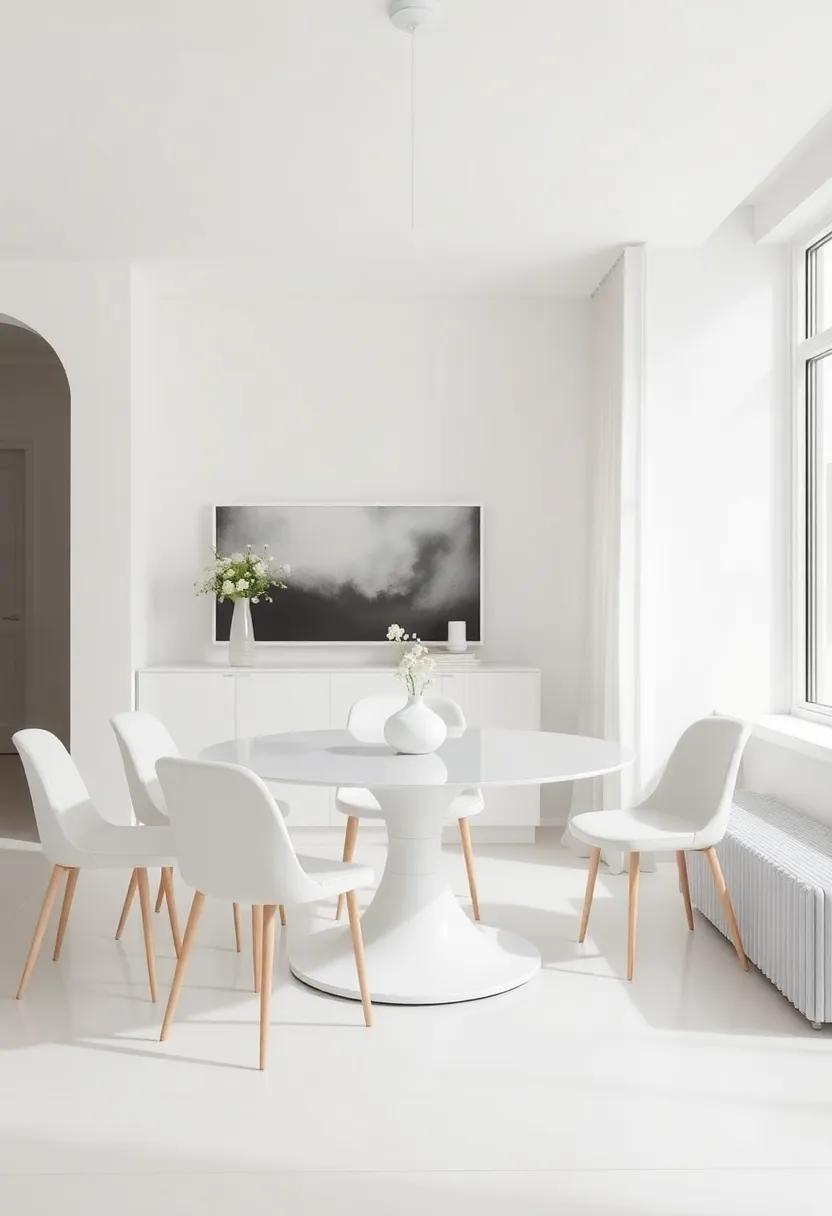
When it comes to selecting a palette that exudes sophistication, the spectrum of white offers an array of choices that can transform your dining room into an oasis of tranquility. From crisp whites that evoke a sense of freshness, to soft creams that add warmth, each shade sets a distinct tone that can enhance your space. Consider these elements when exploring your options:
- Architectural Details: Crisp whites can highlight charming architectural details, drawing the eye towards moldings and ceiling designs.
- textures: Creamy whites paired with natural textures, like wood or linen, create a cozy yet refined ambiance.
- Lighting: The effect of lighting on different shades is crucial; natural light can brighten crisp whites while softer bulbs can warm up cream tones.
To help you visualize these nuances, here’s a simple comparison of different white shades that can work beautifully in your dining area:
| Shade | Description | ideal Pairings |
|---|---|---|
| Crisp White | A radiant, clean tone that enhances spaciousness. | Bold colors, metallic accents, natural wood. |
| Soft Cream | A warm,inviting hue that wraps rooms in comfort. | Earthy tones, soft pastels, rich textures. |
| Warm Vanilla | A mellow, off-white that adds a subtle touch of elegance. | Deep greens, muted blues, golden tones. |
Mixing Traditional and Modern Elements in Neutral Dining Spaces
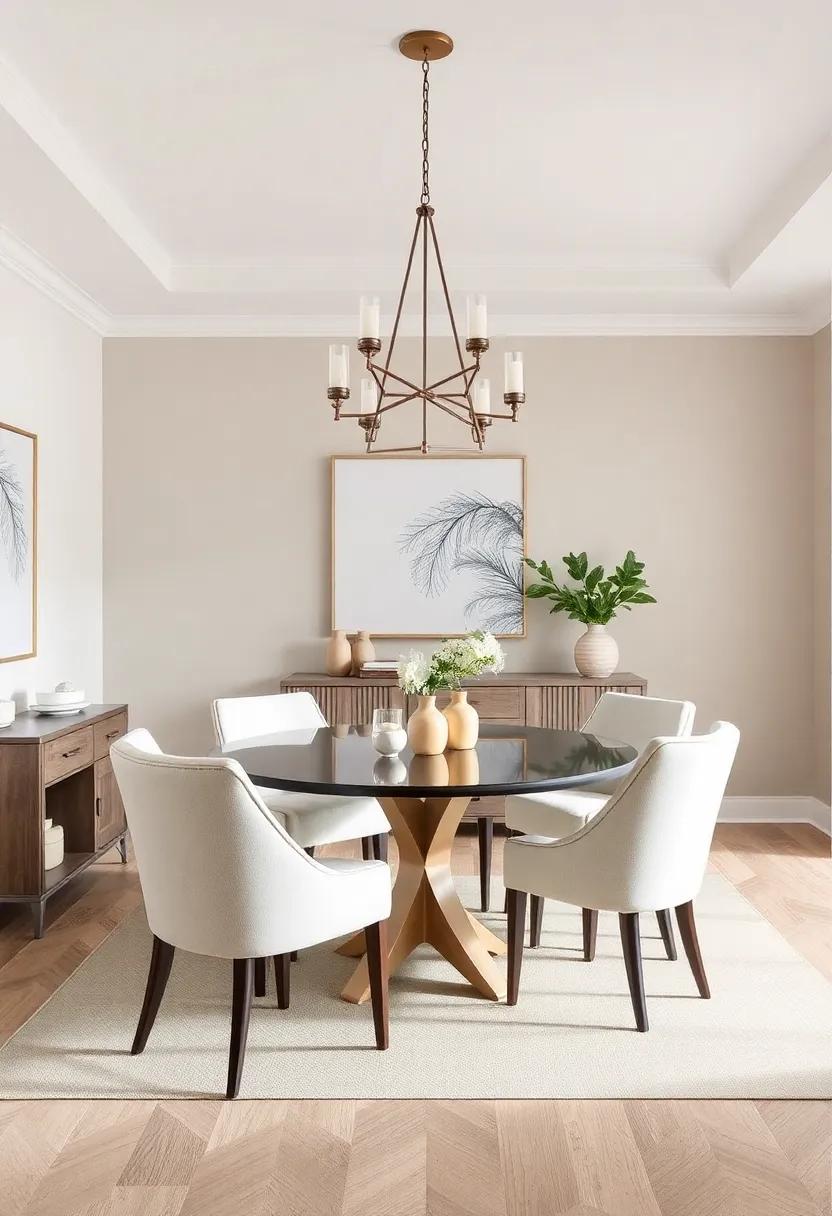
Combining traditional and modern design elements in neutral dining spaces creates a captivating interplay of style that speaks to both the past and the present. To achieve this harmony, consider incorporating classic furniture pieces with sleek modern accents. As an example, a weathered oak dining table can serve as a stunning centerpiece, beautifully contrasted by minimalist, metal-framed chairs. Layering textures is key; mixing traditional fabrics like linen or velvet with contemporary materials such as leather or faux fur introduces visual interest. Add warmth through neutrals like cream and taupe while allowing pops of color in accessories to breathe life into the space.
Another effective strategy is to utilize art and decor that resonates with both design philosophies. Think about showcasing vintage art alongside abstract contemporary pieces, or using antique china in a modern display cabinet. Combining elements allows for a personalized touch, creating a narrative that reflects your style. Here are some ideas to consider:
- Accent Lighting: Use a classic chandelier paired with modern pendant lights.
- Table Settings: Opt for a mix of traditional ceramics and contemporary glassware.
- Wall Treatments: Incorporate traditional wainscoting with a sleek, painted finish.
Utilizing Rugs or Carpets to Define Space in Neutral Color Schemes
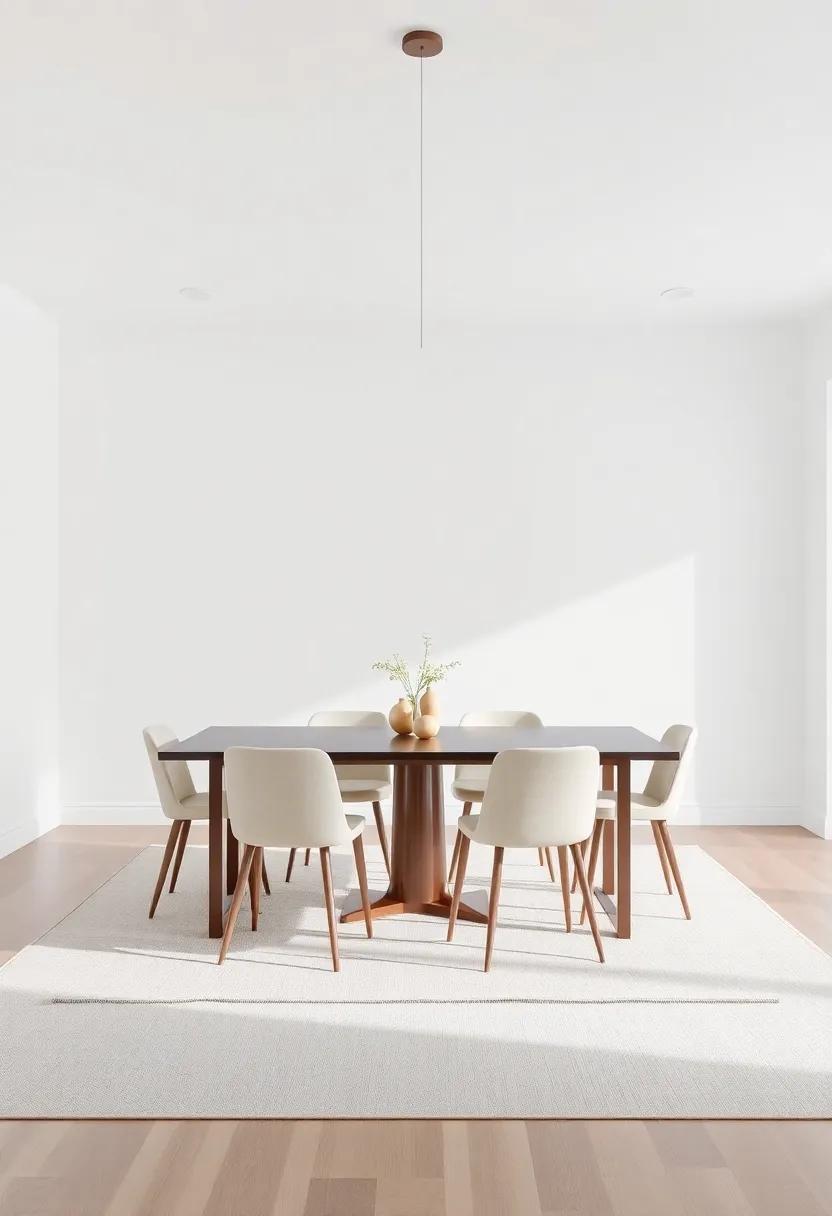
In a dining room adorned with a neutral color palette, the strategic placement of rugs or carpets offers a compelling way to demarcate areas and add visual interest. By selecting rugs in soft beiges, creamy whites, or muted greys, you can create defined zones that enhance the overall flow of the space. A plush area rug beneath the dining table can anchor the room, blending seamlessly with the surroundings while providing comfort underfoot.Consider layering textures by choosing a woven rug paired with a sleek, minimalist dining table, which adds depth and sophistication to the area.
additionally, the dimensions and shape of the rug play a crucial role in shaping the room’s ambiance. Opt for a rug large enough to extend beyond the table, allowing chairs to slide in and out effortlessly without hindrance. complement this with subtle patterns or tonal variations to evoke a sense of warmth without overwhelming the senses. Here are some guidelines for selecting the ideal rug:
- Prioritize size: Ensure the rug fits well under the table and extends beyond the chairs.
- Texture matters: Mix different textile materials for an elevated aesthetic.
- Soft hues: Stick to gentle tones that harmonize with your overall design.
Creating Contrast with Bold Accessories in a Neutral Dining Room
In a neutral dining room, the subtlety of soft whites, warm beiges, and understated grays sets a serene backdrop, inviting various design possibilities. To elevate this tranquil aesthetic, incorporating bold accessories can dramatically shift the perception of space while maintaining an air of sophistication. Consider the following elements to inject personality:
- Vibrant Artwork: A large, colorful canvas or textured piece can serve as a striking focal point.
- Statement Lighting: A bold pendant light or chandelier with an intricate design can draw the eye upward, adding dimension to the room.
- Dynamic Tableware: Experiment with patterned plates or colorful glassware that adds zest to your dining experience.
Using unexpected colors and textures creates a visual dialogue within the neutral palette. For example, a rich emerald green vase or a deep navy table runner can create layers of depth and intrigue. To maximize the impact of these accessories, it’s beneficial to consider their placement:
| Accessory | Ideal Placement | Suggested Color |
|---|---|---|
| Vase | Center of the table or sideboard | Emerald Green |
| Pendant Light | Above the dining table | gold/Brass |
| Table Runner | Across the dining table | Deep Navy |
Harmonizing Architectural Elements with a Timeless Neutral Palette
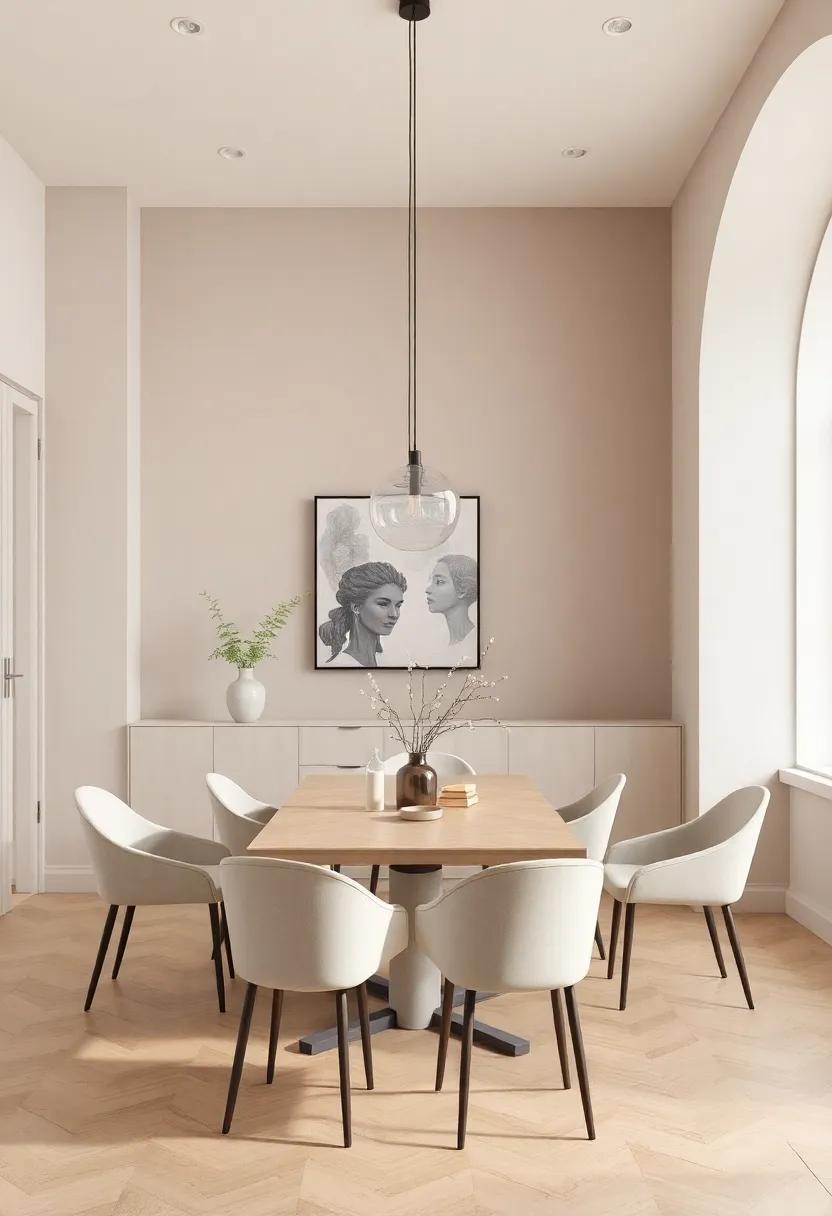
Creating a harmonious dining room begins with a well-considered selection of architectural elements that set the foundation for the space. Neutrality encompasses a diverse range of tones, from powdery whites and soft grays to warm taupes and earthy beiges, each uniquely contributing to the ambiance. To achieve a cohesive look, consider pairing these colors with various textures and materials, such as:
- Rich wood finishes, bringing warmth and natural beauty
- Polished metals, adding a touch of sophistication
- Textured fabrics, offering depth through upholstery and soft furnishings
When these elements are thoughtfully combined, they create a serene environment that feels both inviting and timeless. Balance is key; larger architectural features, like beams or moldings, can be accented with understated color choices. Complement these features with carefully selected decor items that embody simplicity and elegance. For example, a classic table setting could include:
| Item | Description |
|---|---|
| Neutral Dinnerware | Ceramic plates with soft, muted hues |
| Subtle Centerpieces | Glass vases with natural elements |
| Soft Linens | Table runners in muted tones or textures |
Optimizing Window Treatments to Enhance Natural Light and Color Flow
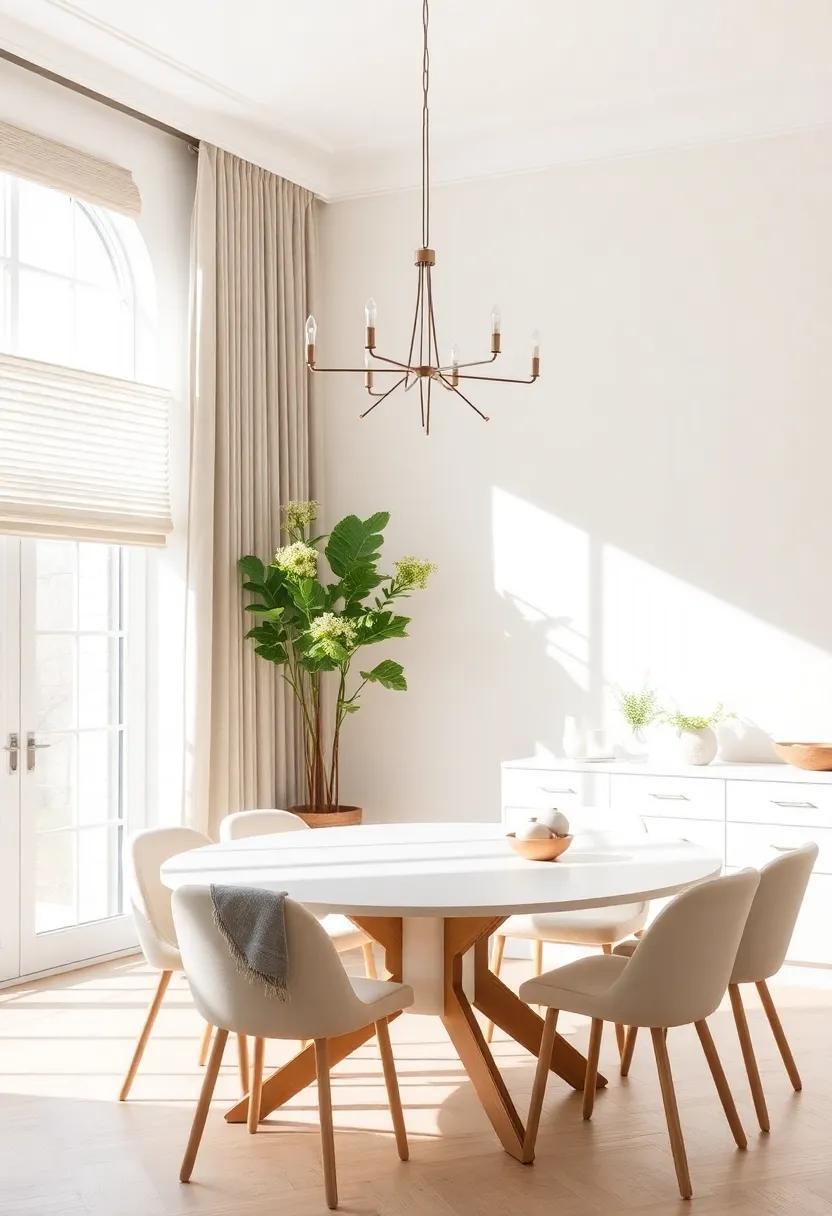
Incorporating window treatments that maximize the flow of natural light can dramatically transform your dining room, enhancing its neutral color palette. Sheer drapes are an excellent choice, allowing sunlight to filter through while maintaining a sense of privacy. Roller shades in subtle tones can also create a clean and modern look, providing adaptability in adjusting light exposure according to the time of day. Consider pairing these with valances or cornices to soften the edges and add texture, creating a harmonious layering effect. Here are a few considerations:
- Choose light fabrics in shades that complement your color scheme.
- Opt for adjustable treatments for versatility in lighting control.
- Incorporate reflective materials for added brightness.
Furthermore, the strategic positioning and design of your window treatments can amplify the color flow throughout the space. Use long, flowing curtains that reach the floor to draw the eye upwards, creating an illusion of height, while maintaining an elegant simplicity. The use of multi-layered treatments can also play a crucial role; combining sheers with heavier drapes provides depth and richness, all while framing the view. Consider the following tips when selecting your window treatments:
| Type | Benefits | Color Options |
|---|---|---|
| Sheer Drapes | Soft light filtering | White, Cream, Soft Grey |
| Roller Shades | Sleek and modern | Neutral Tones, Earthy Shades |
| Heavy Drapes | Textural contrast | charcoal, Sage green, Beige |
Choosing the Right Flooring to Complement a Neutral dining Room Design
when designing a neutral dining room, the choice of flooring plays a crucial role in establishing the overall aesthetic and mood of the space. Opting for the right flooring can enhance the tranquility and elegance of the room, ensuring the color scheme feels cohesive and inviting. Wooden floors, whether light oak or rich walnut, offer a warm base that harmonizes well with various neutral shades.Alternatively, luxury vinyl tiles can mimic the look of natural materials while providing durability and ease of maintenance. For a more contemporary feel, consider polished concrete or ceramic tiles in soft grays or whites, both of which create a sleek and modern backdrop that contrasts beautifully with warmer décor elements.
To further refine your selection, consider these options that can seamlessly blend with a neutral palette:
- Light Beige Carpet: Soft and plush, it adds warmth while remaining understated.
- Natural Stone: Variants like limestone or travertine introduce texture and a touch of sophistication.
- Textured Laminate: available in various finishes, it combines affordability with style.
Don’t forget to take into account the natural light the room receives and the size of the space.Below is a simple table to guide your flooring choice based on these factors:
| Flooring Type | Light Reflection | Space Adaptability |
|---|---|---|
| Wood | Moderate | Versatile |
| Vinyl | High | Small & Large |
| Concrete | High | Large |
| Carpet | Low | Small |
As we conclude our exploration of neutral dining room color schemes, it’s clear that the elegance of simplicity can create a lasting impression. by embracing the art of harmony in your space, you invite not only a sense of calm but also an ambiance that encourages connection and conversation.The timeless appeal of neutral tones allows for versatility, inviting you to layer textures and personal touches without overwhelming the senses.
Remember, the goal of your dining room is to be a backdrop for memories, a canvas for shared moments over meals, and a respite from the chaos of everyday life. As you embark on your journey to transform your dining space,consider the subtle beauty of neutrals—those gentle hues that can adapt and evolve with your style and seasons.
finding the perfect balance is not just about colors and palettes; it’s about creating an atmosphere that feels like home. So, take a step back, breathe in the tranquility of your thoughtfully chosen tones, and welcome the timeless elegance that only a harmoniously designed dining room can offer. Here’s to countless gatherings, memorable meals, and the warmth of togetherness that your neutral palette will surely inspire.


